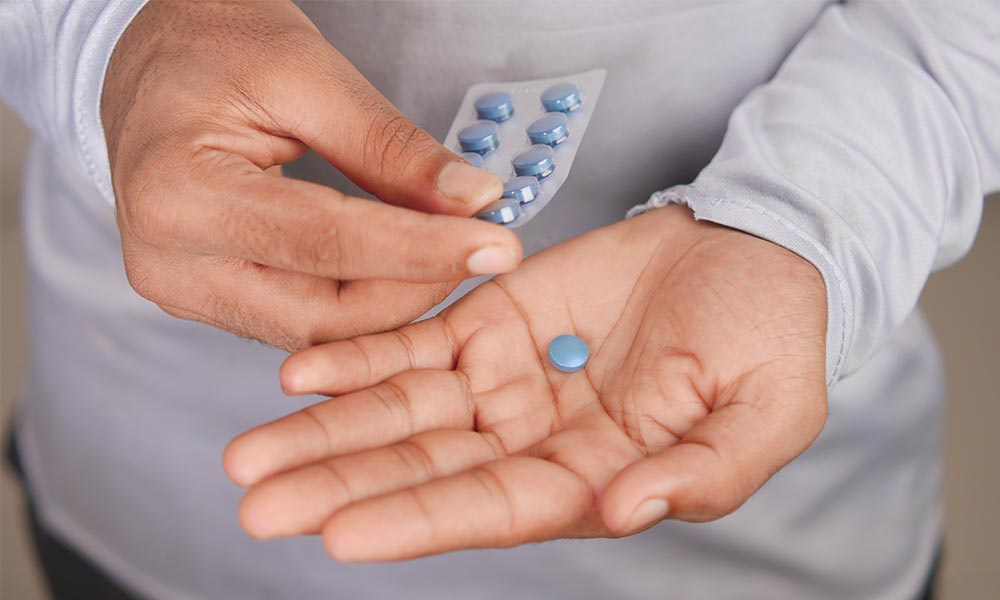Table of Contents
Key Points
- Adderall is a prescription stimulant medication that’s FDA-approved to treat attention-deficit hyperactivity disorder in children and adults.
- The DEA has classified Adderall as a Schedule II controlled substance due to the risk of abuse and addiction.
- People who misuse Adderall are at a higher risk of serious short-term and long-term effects on mood, personality, behavior, and physical health.
- Adverse effects of Adderall may include depression, psychosis, anxiety, manic behavior, paranoia, nervousness, agitation, and aggressive or violent behavior.
- Signs of Adderall abuse include skin sores, tooth decay, increased energy, negative changes in mood or personality, decreased appetite, and trouble sleeping.
- Signs of Adderall addiction include intense cravings for Adderall, spending a lot of time using stimulants, needing more stimulants to achieve the same effect, and experiencing withdrawal symptoms when not taking stimulants.
- Withdrawal symptoms associated with Adderall addiction include irritability, fatigue, weight gain, paranoia, and suicidal thoughts.
- Treatment of stimulant use disorder is available and may include detoxification services, inpatient and partial hospitalization services, behavioral and mental health therapy, intensive outpatient services, and aftercare/relapse prevention support.
Psychological Impact of Adderall: Effects on Personality
Adderall can have significant effects on personality, mood, and behavior. These Adderall personality changes can vary by individual and can depend on several factors. It’s important to take Adderall only as prescribed by a doctor for the treatment of attention-deficit hyperactivity disorder.
People who abuse Adderall may be at an increased risk of negative personality changes, including aggression, hostility, and paranoia. Substance abuse treatment options are available for people who misuse Adderall or have become addicted to stimulants.
What Is Adderall?
Adderall is the brand name for a stimulant drug that is a combination of dextroamphetamine and amphetamine. This prescription central nervous system stimulant is a common ADHD medication and is FDA-approved to relieve symptoms of hyperactivity, inattention, and impulsivity in both adults and children. [1]
For the treatment of attention-deficit hyperactivity disorder, the stimulant medication is usually prescribed alongside other treatment methods such as behavioral therapy. Off-label, Adderall is sometimes prescribed to treat the sleep disorder narcolepsy.
Due to the high risk of abuse and addiction, the U.S. Drug Enforcement Administration has classified Adderall as a Schedule II controlled substance. [2] Young adults and college students may be at an increased risk of Adderall misuse, since there is a concerning trend of using stimulants without a prescription to increase focus during study sessions.
Side Effects of Adderall
Like other prescription stimulants, Adderall is associated with a long list of potential side effects. Abusing Adderall or taking it in higher doses may increase the chance of adverse side effects, including those that affect personality, mood, and emotions. Some of the negative side effects of Adderall include: [3]
- Mood changes
- Loss of appetite and weight loss
- Nervousness
- Trouble speaking or slowed speech
- Feeling suspicious of others
- Low mood or depression
- Agitation
- Manic behavior
- Psychosis (including hallucinations and delusions)

Signs of Adderall Abuse
While subtle mood swings or personality changes can be a side effect of Adderall use as prescribed, these changes may be more pronounced for individuals who are abusing the substance or who have developed an addiction. If a loved one is not being treated by a doctor for ADHD or narcolepsy and begins to experience mood, personality, or behavioral changes, it could be a sign of substance abuse. Signs and symptoms of stimulant abuse may include: [4]
- Appearing more confident
- Being more talkative, especially in social situations
- Seeming less inhibited
- Appearing unusually happy or euphoric
- Seeming to have more energy
- Demonstrating aggressive, hostile, or violent behavior
- Seeing or hearing things that aren’t there
- Experiencing delusions or believing things that aren’t true
- Appearing depressed or suicidal
- Having trouble sleeping
- Experiencing memory problems
- Tooth decay (also known as meth mouth)
- Skin sores
Signs of Adderall Addiction
People who abuse Adderall are at a higher risk of developing an addiction or dependence on stimulant medications. This is referred to as stimulant use disorder and is associated with symptoms such as: [5]
- Intense cravings for Adderall
- Using Adderall even though it’s worsening a physical or mental health condition
- Continued use of Adderall despite it causing problems at work, school, or home
- Using Adderall in risky or dangerous contexts
- Trouble controlling how much or how long stimulants are used
- Spending a lot of time using Adderall
- Giving up other activities due to Adderall use
- Needing higher doses of Adderall to achieve the same effects (i.e., building tolerance)
- Experiencing withdrawal symptoms when not using stimulants for a period of time
- Trouble meeting responsibilities due to stimulant use
If you or a loved one is experiencing two or more symptoms of stimulant use disorder, it may be a sign to reach out for professional support. Without treatment, this condition tends to progress and may be even harder to manage. Four or more symptoms of Adderall addiction could point to a more serious substance use disorder, and six or more symptoms indicate a severe stimulant addiction. These guidelines are set by the American Psychiatric Association in their Diagnostic and Statistical Manual of Mental Disorders, Fifth Edition, or DSM-5 for short. [6]
Adderall Withdrawal Symptoms
One of the main signs of physical dependence or addiction to stimulants like Adderall is experiencing withdrawal symptoms when abstaining from the drug. These withdrawal effects may include: [7]
- Irritability
- Fatigue
- Trouble concentrating
- Paranoid thoughts and feelings
- Depression
- Trouble sleeping
- Anxiety
- Increased appetite
- Weight gain
- Stimulant cravings
- Suicidal ideation
Addiction treatment is available for stimulant use disorder and may decrease the severity of withdrawal symptoms. This can improve the odds for recovery, though additional substance abuse treatment may be necessary following detoxification.
Adderall Overdose
People who abuse Adderall are at risk of a fatal overdose. If you or a loved one is taking Adderall recreationally, without a prescription, or in higher doses than prescribed, it’s important to be aware of the signs of an overdose on stimulants: [8]
- Rapid breathing
- Muscle weakness
- Nausea or vomiting
- Diarrhea
- Panic
- Aggressive or violent behavior
- Red or dark-colored urine
- Seizures
- Blurry vision
- Hallucinations
- Confusion
- Fainting
- Fever
- Loss of consciousness
Signs of an overdose on Adderall should be treated as a medical emergency. If the person is having seizures, loses consciousness, or is having trouble breathing, call 911 or seek emergency medical attention. You can also control athe Poison Control helpline at 1-800-222-1222.
Adderall Addiction Treatment
If you or a loved one is addicted to Adderall or other stimulants, help is available. Trained substance use and rehabilitation counselors are experienced in treating the symptoms of stimulant use disorder, including uncomfortable and dangerous withdrawal effects. They can assess your condition and help you explore effective treatment options such as detox services, inpatient programs, behavioral and mental health treatment, and aftercare support. Reaching out for help is brave and can reap long-term rewards.
Frequently Asked Questions About Adderall Effects on Personality Changes
Sources
[1] Warning: Abuse, misuse, and addiction – accessdata.fda.gov. (n.d.-c). https://www.accessdata.fda.gov/drugsatfda_docs/label/2023/011522s045lbl.pdf
[2] Drug scheduling. DEA. (n.d.). https://www.dea.gov/drug-information/drug-scheduling
[3] [8] U.S. National Library of Medicine. (n.d.-c). Dextroamphetamine and amphetamine: Medlineplus Drug Information. MedlinePlus. https://medlineplus.gov/druginfo/meds/a601234.html#side-effects
[4] U.S. National Library of Medicine. (n.d.-d). Substance use – amphetamines: Medlineplus medical encyclopedia. MedlinePlus. https://medlineplus.gov/ency/patientinstructions/000792.htm
[5] [7] What is stimulant use disorder? signs, symptoms, & treatment – goodrx. (n.d.-d). https://www.goodrx.com/conditions/stimulant-use-disorder
[6] DSM. Psychiatry.org – DSM. (n.d.). https://www.psychiatry.org/psychiatrists/practice/dsm
[9] [10] U.S. National Library of Medicine. (1999, January 1). Chapter 3-Medical Aspects of stimulant use disorders. Treatment for Stimulant Use Disorders: Updated 2021 [Internet]. https://www.ncbi.nlm.nih.gov/books/NBK576550/
[11] American Psychological Association. (n.d.). Monitor on psychology. https://www.apa.org/monitor/2024/04/adhd-managing-emotion-dysregulation
Embers Recovery Editorial Guidelines
At Embers Recovery, we take your health and wellness seriously. We have a thorough process in place to ensure the integrity of information that is displayed on our website. All content published to our site undergoes a rigorous medical review by a doctorate level clinician to ensure medical accuracy.
Read More About Our Process


